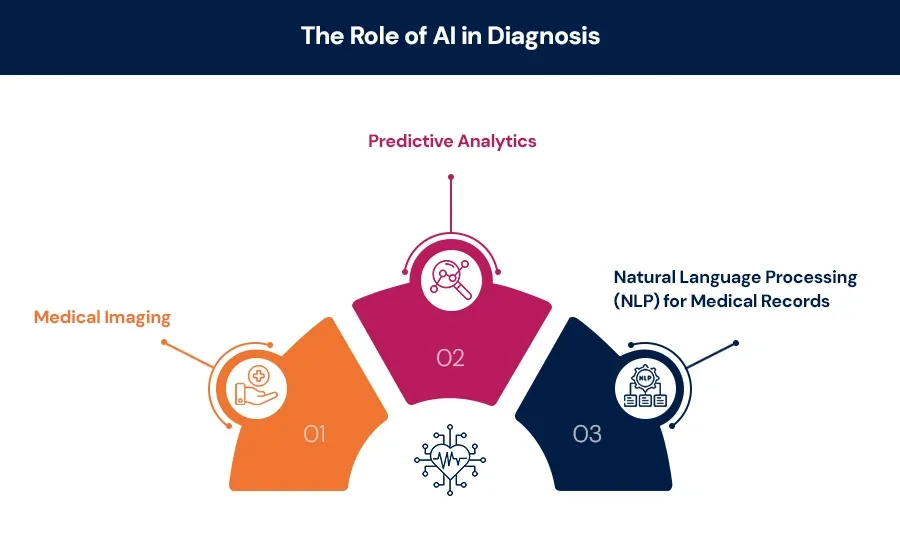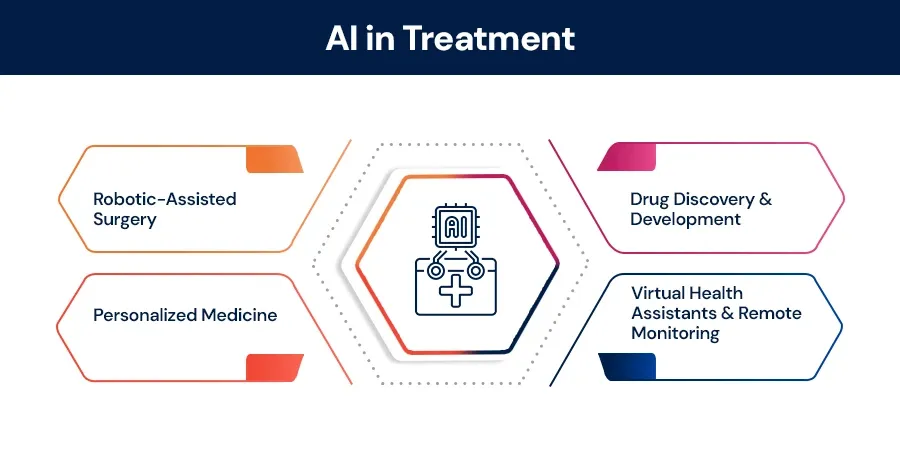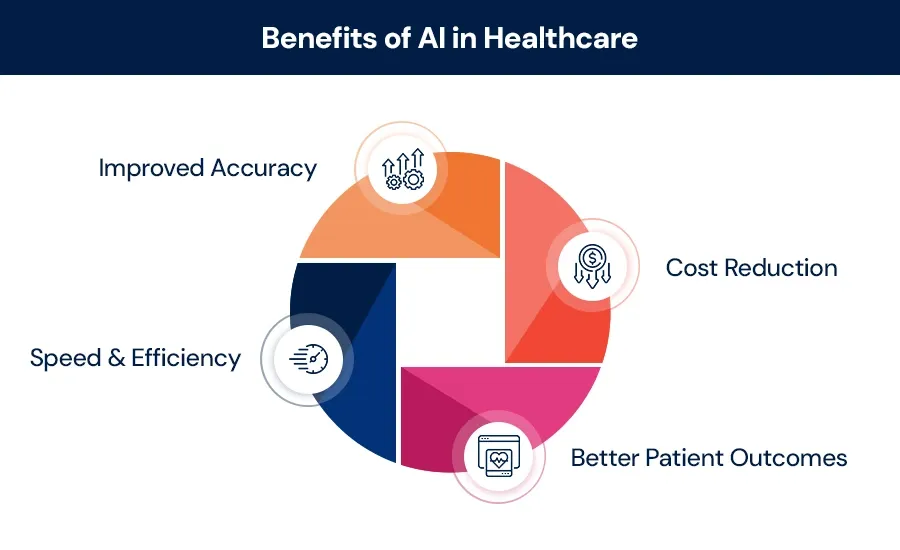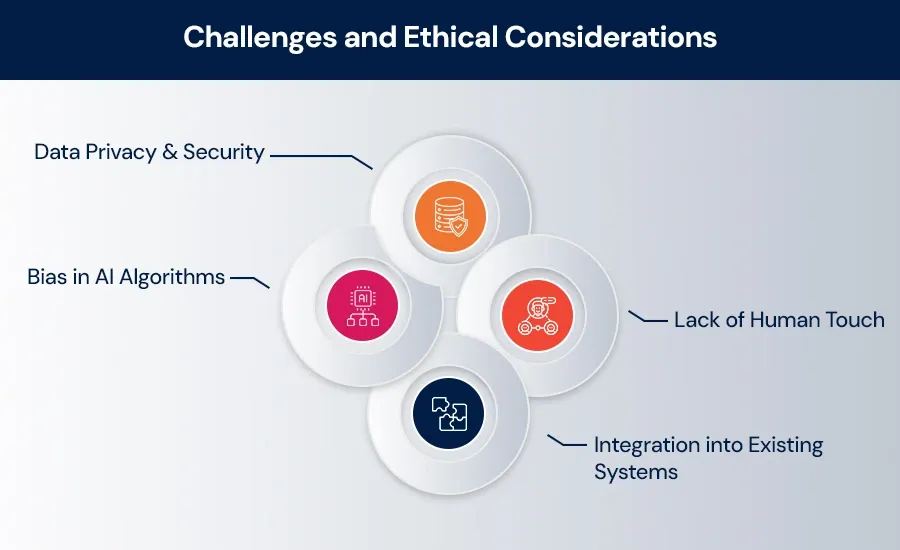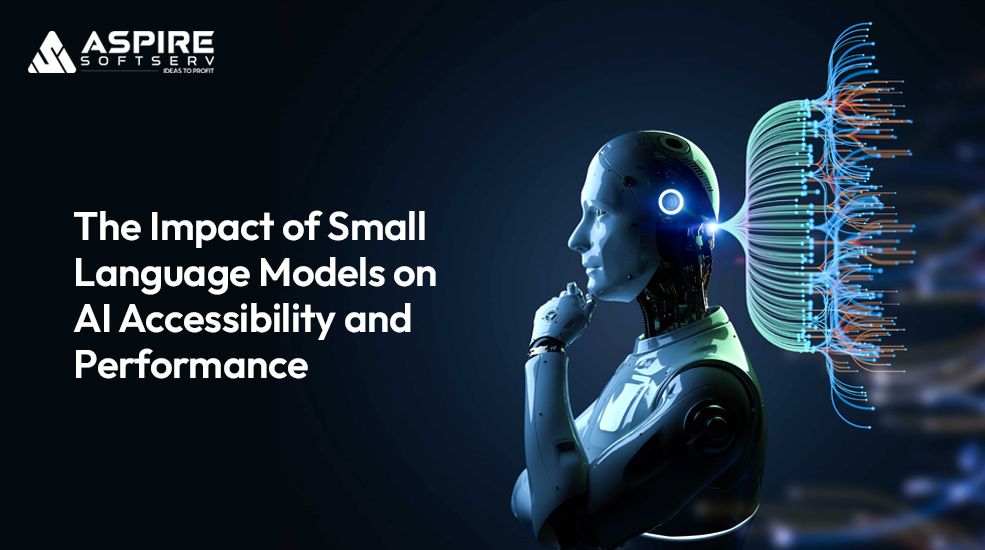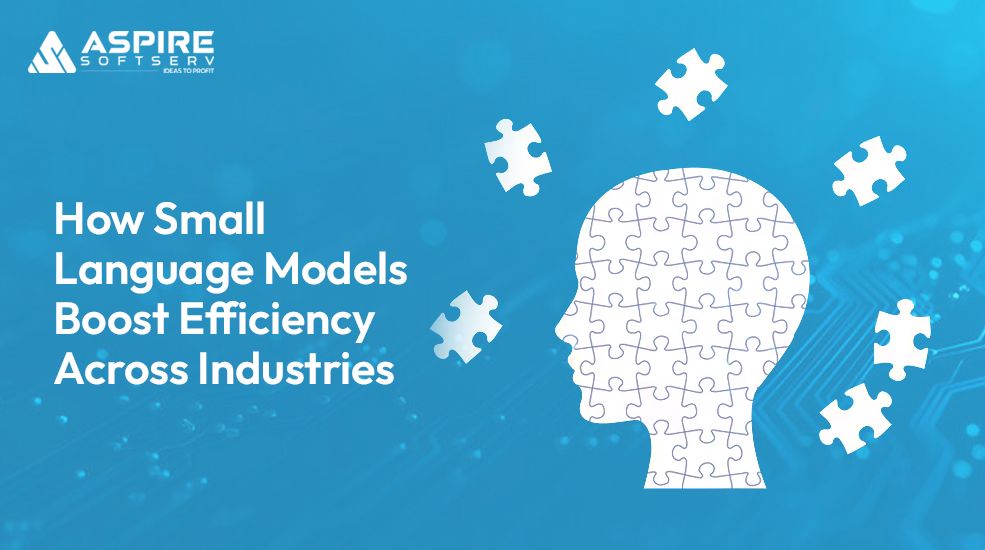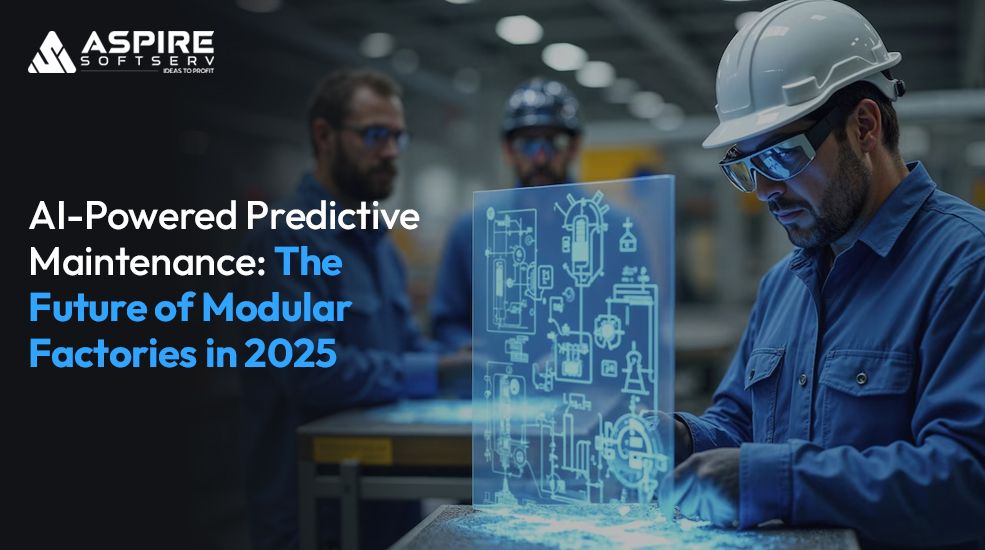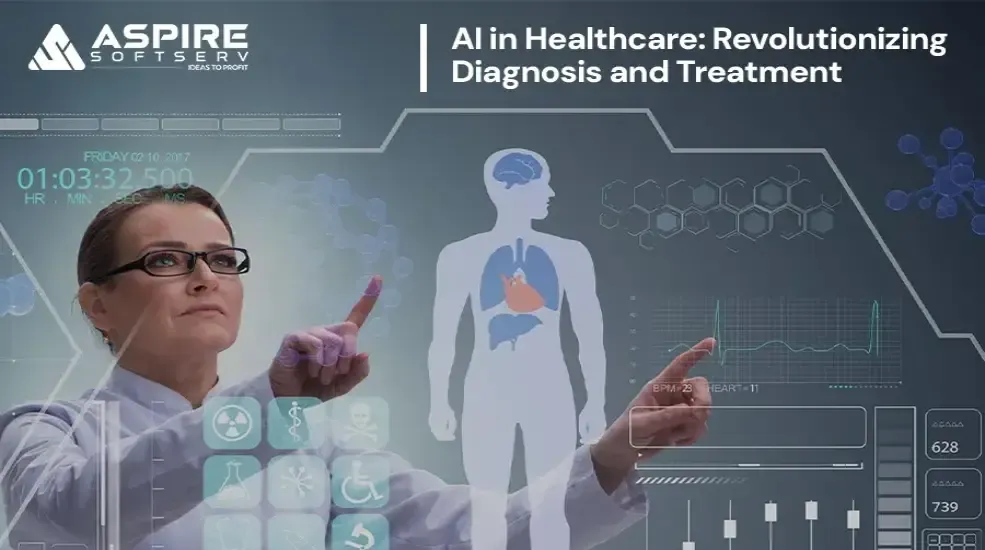
Artificial intelligence (AI) is transforming many industries, with healthcare being one of the most dramatically impacted. From early disease detection to streamlined treatment plans, AI is shaping the future of medicine. This blog explores how AI is revolutionizing diagnosis and treatment, highlighting its current applications, benefits, and challenges.
The Role of AI in Diagnosis
Healthcare AI development services are now improving diagnostic services by making them more efficient and accurate. AI in Diagnostics uses advanced algorithms to analyze large data sets, detecting patterns that even skilled healthcare professionals might miss.
This technology is most useful when employed in recognizing rare or complicated disorders since conventional approaches might sometimes prove ineffective. By integrating AI Diagnostics into healthcare, providers can reduce diagnostic errors and improve patient outcomes.
AI presents information that supplements and in many ways strengthens the work of clinicians, which is why it has become so important in contemporary diagnostics.
1 Medical Imaging
One of the most advanced and best-known contributions that AI makes to the world of medical imaging involves reviewing and interpreting medical scans like MRIs, CT scans, X-rays, etc., with complete accuracy far beyond the abilities of human perception, and detecting abnormalities that may be missed by a human.
For instance, with AI, early stages of cancer, Alzheimer's, or cardiovascular diseases may be detected. In oncology, AI tools support the analysis of biopsy images, and a prediction about cancer progression is made.
There have been studies comparing the AI system with human radiologists in diagnosing the conditions of patients, and in many cases, AI systems have been proven to surpass or at least compete with the efficiency of human experts.
2 Predictive Analytics
Beyond imaging alone, predictive analytics is changing the face of diagnostics, giving AI the power to predict health risks even before symptoms are realized. Using wearable devices, electronic health records, and other clinical data, AI can predict possible health risks, even before a patient begins showing symptoms.
Predictive diagnosis proves crucial in managing chronic diseases like diabetes and heart disease; early intervention is sure to fare better for patient outcomes.
3 Natural Language Processing (NLP) for Medical Records
Another such AI technology aiding in diagnosis is NLP which enables AI systems to find patterns in unstructured data, including doctor's notes or medical records, and can flag specific health concerns. NLP-based tools may quickly scan thousands of records to pinpoint trends or symptoms that can help in quicker and more accurate diagnoses.
AI in Treatment
AI is changing the treatment of patients completely: from robotic surgery to personalized medicine. AI helps health professionals make much more efficient and above all precise treatment.
1 Robotic-Assisted Surgery
Robotic surgery systems, with AI powering them, give surgeons more precision as well as control while performing complex tasks. These are also designed to take over jobs that require delicate minute movements, such as neurosurgery, and often lead to a faster recovery and fewer complications.
Improvement of performance will be directly related to the analysis of video feeds during surgery and providing real-time guidance, suggestions corrections, or warnings regarding risks. Fully autonomous surgical systems may come of age as AI technology continues to evolve.
2 Personalized Medicine
Perhaps one of the most exciting applications that AI brings to healthcare is in personalized medicine, where analyzing a patient's genetic makeup, lifestyle, and medical history will predict how an individual will respond to certain treatments and result in personalized treatment plans.
For instance, oncology may use AI-driven tools to scan the genetic profile of a tumor and recommend targeted therapies to be more likely to succeed. Of course, personalized medicine reduces the "try-and-error" approach, hence quicker and more effective treatment and successful discharge for the patient.
3 Drug Discovery and Development
AI is accelerating drug discovery as it interprets vast datasets and determines which compounds will work better against which diseases. Traditionally, years and billions of dollars go to waste developing only a single new drug.
AI reduces such timelines by finding promising candidates faster simulating how they may behave and optimizing clinical trials by being able to find better candidates more quickly. These AI systems did take fast action during the COVID-19 pandemic to hasten the time to find potential treatments by quick analysis of available drugs and vaccines in making Swiffer decisions for clinical trials.
4 Virtual Health Assistants and Remote Monitoring
AI is improving remote patient monitoring and virtual care. AI Virtual assistants can be enabled to answer patient questions, remind patients to take their medicines, or inform them about symptoms in real time.
In telemedicine, AI-powered applications can evaluate the patient's symptoms, and thus decision-making by care providers is even better in these cases. Using AI to read health metrics continuously with wearable devices, doctors may receive alerts for an actual need to intervene and allow for preventive and proactive healthcare.
Explore Our Solutions: Assistant For Healthcare Professionals
Benefits of AI in Healthcare
1. Improved Accuracy: AI brings better accuracy in diagnosis and treatment. It identifies small nodes in medical images or works on patient genetics for more accurate treatments, as it eliminates human error to produce better health outcomes.
2. Speed and Efficiency: AI accelerates the process of reviewing images of medical conditions, for example, or processing huge amounts of medical data. This efficiency enables healthcare providers to examine more patients and concentrate more on complicated cases, thereby lightening the health sector's workload.
3. Cost Reduction: Apart from all this, AI could also help reduce the health care cost by making it more accurate and reducing the time taken to diagnose and treat. As the condition would be diagnosed at an earlier stage, less expensive treatments would be involved. In addition, AI will also optimize the clinical trials, and it will help reduce the drug development costs.
4. Better Patient Outcomes: Patients are likely to get better with this along with faster, more accurate diagnoses and treatment plans tailored according to the problem. Further, AI will also aid continuous monitoring by allowing healthcare providers to intervene before the situation escalates in the patient's condition.
See Also- AI in Banking: How Does AI Enhance Banks?
Challenges and Ethical Considerations
1. Data Privacy and Security: Of course, AI requires a huge amount of data sensitive health-related-mostly. Well, it's time to take into consideration how patient data might be breached to external parties. It means strict compliance with HIPAA and several other regulations dealing with security concerning patient data.
2. Bias in AI Algorithms: AI systems are no better than the data that they are trained on. The algorithm that they produce may result in biased outcomes if the training data is biased. Disparities in healthcare might exist based on whether AI has been used to diagnose or treat.
3. Lack of Human Touch: Thus, while AI does increase the accuracy and efficiency of healthcare, the same point made about data being crucial can be countered by the fact that healthcare doesn't just deal with data—it deals with a human relationships. Others fear that reliance on AI may weaken the empathetic, human aspect of patient care.
4. Integration into Existing Systems: Implementing AI in health care is difficult, and the cost of maintaining the infrastructure, training the health practitioners, and to an extent, amending the regulatory framework comes at a pretty hefty price.
See Also: How To Make An Intelligent AI Model
Conclusion
AI is poised to transform diagnosis and treatment in healthcare by providing solutions for quick, effective care and personalized treatments, ultimately saving costs. While challenges remain, the benefits of AI in healthcare are clear and continue to evolve. The future will depend on achieving a balance between human expertise and machine intelligence, ensuring that AI augments rather than replaces the essential human connection in patient care.
Make Own AI Healthcare Solutions With Our Experts!

